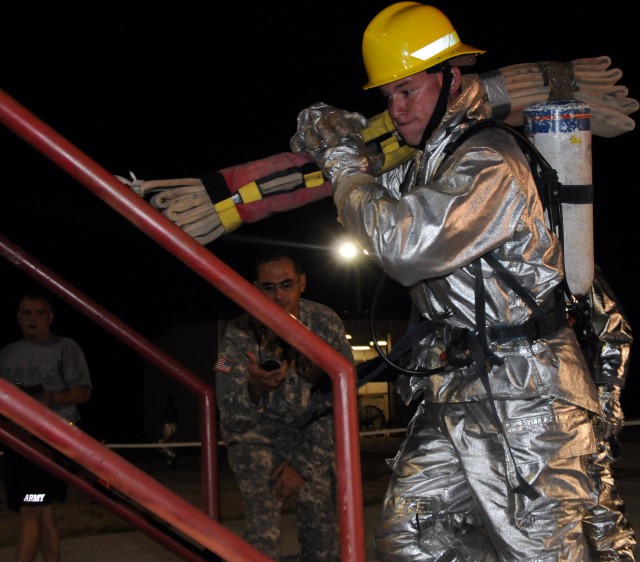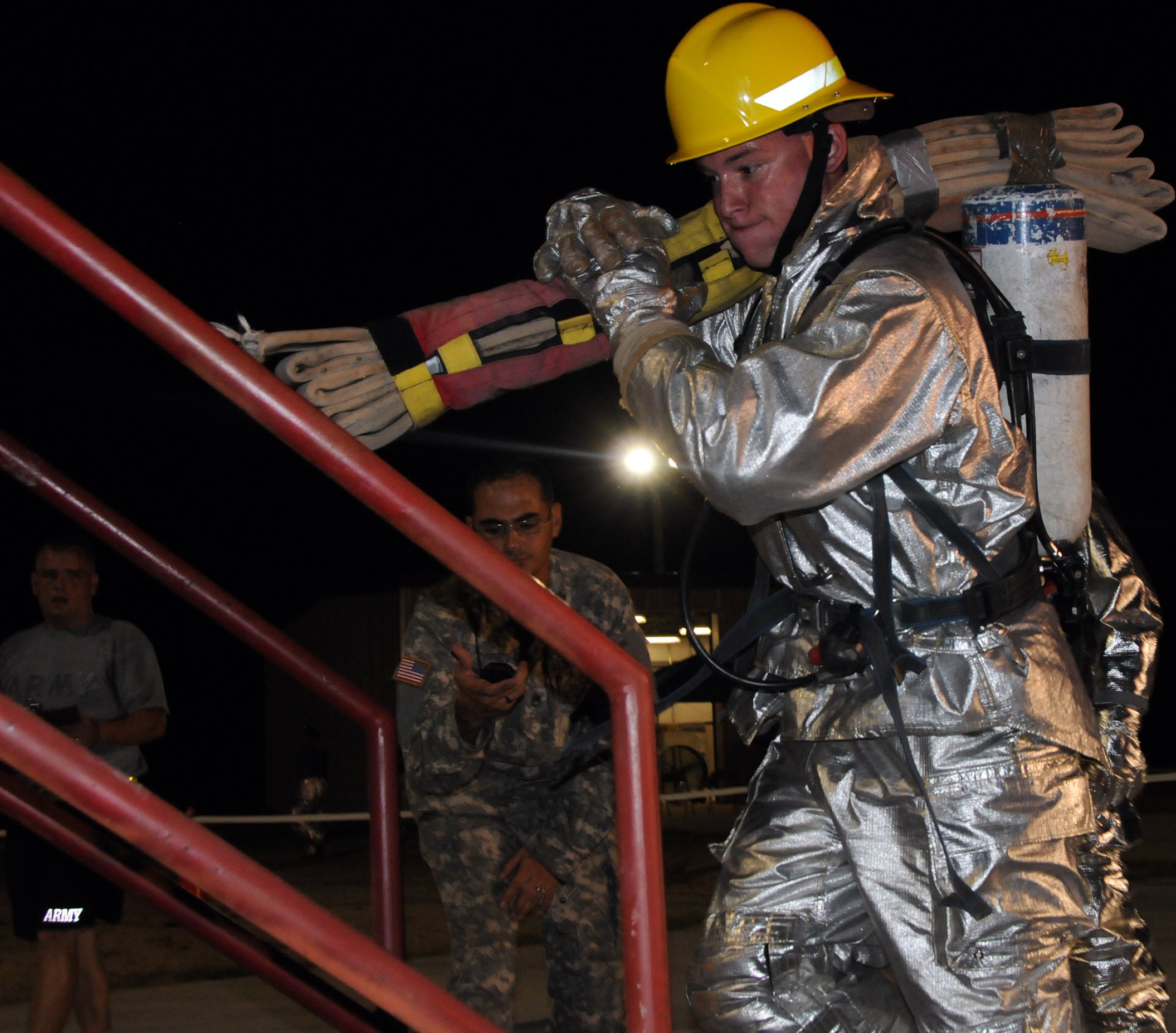SAN ANTONIO, Texas -- Fire Prevention Week is Oct. 3-9, but Installation Management Command safety officials, from headquarters to garrison level, say such concerns remain a constant priority.
That's especially true this year as Army installations experienced more than 300 reportable fire incidents in the first three quarters of fiscal year 2010 - resulting in three deaths, nine injuries and $18 million of damages.
"We are committed in keeping Soldiers and their families prepared and safe whether deployed or at home ... every day, every week, every month, every year," said Gerald Adams, IMCOM fire protection specialist.
Indeed, "We really emphasize safety and prevention during Fire Prevention Week, but it's something that needs to be a year-round concern," noted Steve Collins, fire chief at Fort Rucker, Ala. "It doesn't matter if it's in the home or at a workplace, fire prevention is essential."
This year's theme for the weeklong event is "Smoke Alarms! A Sound You Can Live With." The campaign is designed to educate people on the importance of smoke alarms, while encouraging everyone to take the steps necessary to update and maintain their home smoke alarm protection.
And the reason is simple, said Adams: "If you were asleep and a fire broke out in your home, do you think the smoke would awaken you' If you think so, you may be dead wrong. In fact, fire and smoke are sedatives that will only put you into a deeper sleep while the squelching sound of a smoke alarm will awaken you."
Consequently, he made these suggestions:
Aca,!Ac Install and maintaining a smoke alarm on every level of your home.
Aca,!Ac Never remove or disable smoke alarms.
Aca,!Ac Test smoke alarms at least monthly by pushing the test button.
Aca,!Ac If an alarm "chirps," the warning the battery is low, replace the battery right away.
Some smoke alarms have strobe lights, also called visible notification appliances, which signal people with hearing loss. Replace batteries at least twice a year if you own a battery-operated smoke detector(s), such as when you change to daylight savings time.
Collins added that having a working smoke alarm in all buildings is a first step to preventing possible disaster.
"It's important to have them and to make sure they work," he said. "Checking a smoke alarm at least once a month is a good idea. They usually have a test button on the outside that will let you know if it still works. When the battery is getting low, the detector usually makes a sound to indicate it needs a new one."
There are two basic types of smoke alarms: ionization and photoelectric And a combination of the two allow sensors to detect slow and fast developing fires. They provide an early audible warning of a potential fire, allowing residents the precious but limited time it takes to escape, which could reduce the risk of dying from a home fire by almost half, said Adams.
Army Family Housing leases executed on or after Oct. 1, 2006, and renewals or extensions of existing leases on or after Oct. 1, 2007, require hard-wired smoke alarms throughout the building and that they be interconnected. Leases executed prior to those years have smoke alarms installed in hallways leading to bedrooms. Occupants can, at their own expense, install additional smoke alarms. Army barracks have smoke alarms installed in all sleeping areas.
Collins believes the smoke alarm is a time-tested, proven life-saving device no home or business should be without.
"When an alarm goes off, people should react accordingly," he said. "The device gives plenty of warning and that has saved numerous lives over the years."
Fire Prevention Week was established to remind folks of the importance of fire safety and the lessons learned following the Great Chicago Fire that killed more than 250 people, left 100,000 homeless, destroyed more than 17,400 structures and destroyed a business empire. In 1920, President Woodrow Wilson issued the first National Fire Prevention Day proclamation, and FPW has been observed since 1922.
Army Fire and Emergency Services partners annually with the National Fire Protection Association to promote Fire Prevention Week.
Individuals having questions should contact their installation fire prevention office.
(Russell Sellers of the Fort Rucker Public Affairs Office contributed to this story)


Social Sharing